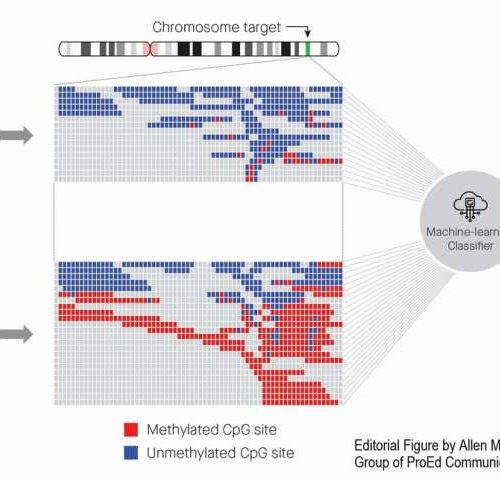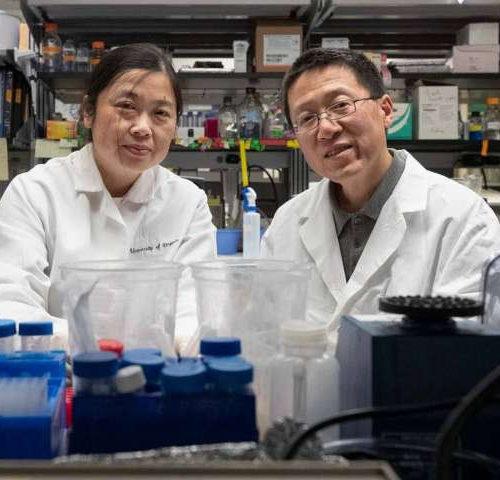WASHINGTON–COVID-19 infection may cause subacute thyroiditis, according to a new case study published in The Journal of Clinical Endocrinology & Metabolism. Subacute thyroiditis is an inflammatory thyroid disease characterized by neck pain and is usually preceded by an upper respiratory tract infection. It may be caused by a viral infection or a post-viral inflammatory reaction,...
Tag: <span>cancers</span>
Metastudy says aspirin lowers risk of some cancers, but questions remain
By Rich Haridy April 16, 2020 A new study is presenting the most current meta-analysis of published observational research investigating whether long-term aspirin use reduces the risk of developing digestive tract cancers. While the results suggest aspirin may help prevent some cancers, some experts question how useful this kind of associational study is, particularly when...
Blood test detects wide range of cancers, available to at risk individuals in clinical study
by Dana-Farber Cancer Institute In a study involving thousands of participants, a new blood test detected more than 50 types of cancer as well as their location within the body with a high degree of accuracy, according to an international team of researchers led by Dana-Farber Cancer Institute and the Mayo Clinic. The results, published...
5 ways to fight colon cancers
With screening, colon cancers can effectively be detected and prevented. Though colon cancer is the third-leading cause of cancer death in the United States, one-third of Americans over age 50 are not getting screened. “Screening saves lives and can prevent colon cancer,” said Dr. Susanne Shokoohi, a gastroenterologist at Loyola Medicine in Maywood, Ill. More...
Childhood brain tumor discovery may unlock new treatments for many cancers
by Josh Barney, University of Virginia A surprising discovery about a rare form of childhood brain cancer suggests a new treatment approach for that cancer—and potentially many others. Researchers Ying Jiang, left, and Hui Zong were part of the team that found a supposedly simple form of cancer was more complex than thought, opening potential...
Microbiome provides new clues to determining development of colon cancer
by George Washington University A mutant protein found in humans with colon cancer blocks a pathway that regulates proliferation and expansion of cells, increasing amounts of bacterial species associated with the development of colon cancer. These findings, showcasing the connection between bacteria in the microbiome and colon cancer, were published by a team of researchers from...
This neurotransmitter helps aggressive tumors spread
By Maria Cohut Fact checked by Jasmin Collier New research has looked at human cancer cells implanted into mice, human tumor samples, and other assays in an attempt to better understand what drives the spread of certain aggressive cancers. A team at Johns Hopkins Medicine in Baltimore, MD, has recently conducted a study, the results of which...
Clinical trial launches to develop breath test for multiple cancers
Researchers have launched a clinical trial to develop a breath test, analysing molecules that could indicate the presence of cancer at an early stage. This is the first test of its kind to investigate multiple cancer types. A cancer breath test has huge potential to provide a non-invasive look into what’s happening in the body and could help to find cancer early when treatment is more likely to be...
Delving where few others have gone, leukemia researchers open new path
A Wilmot Cancer Institute study uncovers how a single gene could be at fault in acute myeloid leukemia (AML), one of the deadliest cancers. The breakthrough gives researchers renewed hope that a gene-targeted therapy could improve AML survival rates, which have not budged in recent years. The gene, known as EVI1, rewires the entire panoply...
Yale cancer researchers suggest new treatment for rare inherited cancers
YALE UNIVERSITY New Haven, Conn. — Studying two rare inherited cancer syndromes, Yale Cancer Center (YCC) scientists have found the cancers are driven by a breakdown in how cells repair their DNA. The discovery, published today in Nature Genetics, suggests a promising strategy for treatment with drugs recently approved for other forms of cancer, said the...




